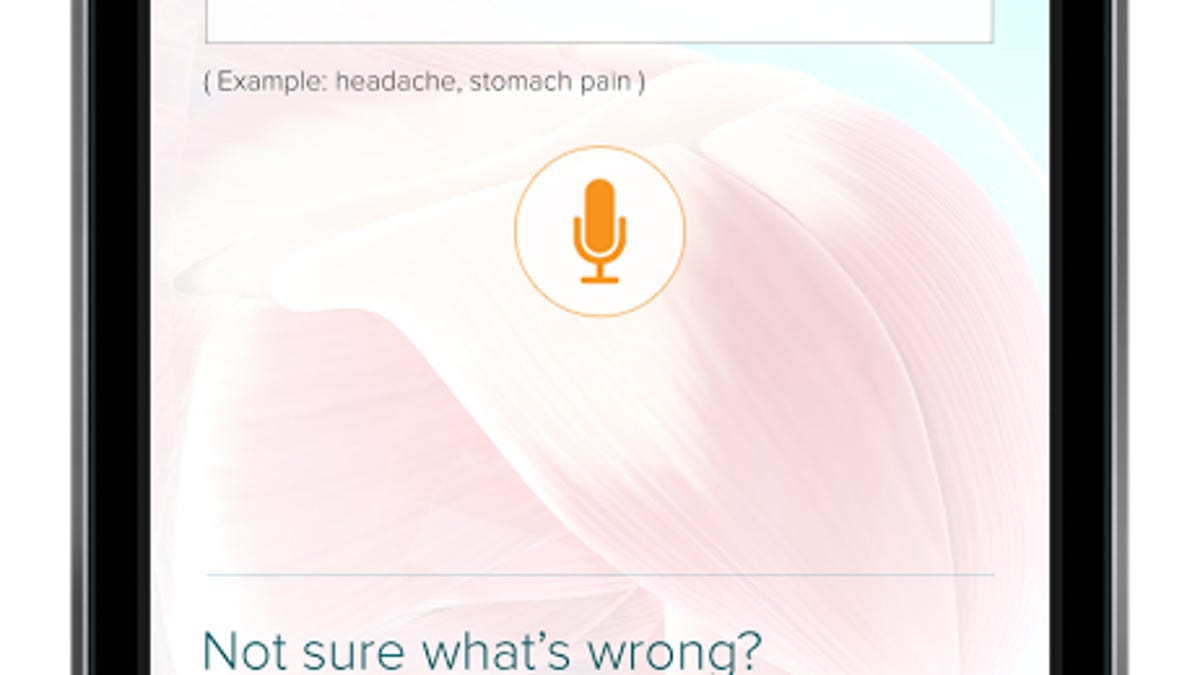Feeling sick? Free AskMD app by Dr. Oz's Sharecare aims to help
The app lets users enter symptoms, answer relevant questions, share consultations with health care providers, and maintain a general health and symptom history for multiple people.

'Twas the night before Christmas and all through the house, not a creature was stirring -- not even a mouse.... When out from your chest there arose such a clatter, you sprang from your bed to see what was the matter. Away to your phone you flew like a flash -- but your doc's office went to voicemail, and you were simply aghast!
Fortunately, in this the 21st century, there are many ways for a person in such a conundrum to proceed -- emergency room visits, search engines, call-a-doc services, etc. (Don't worry, the rhyming has stopped.) Now famed cardiothoracic surgeon and TV personality Dr. Oz wants his new Sharecare app AskMD to be at the top of your list.
Launched today, the free iOS app for iPhone and iPod touch (Android version due out in 2014) is a symptom checker and health history portal you can use to better understand and track not only your own day-to-day health but that of your friends and family members as well.
"It's about digital caregiving, to help identify some of the problems you can have, organize them, keep them over time -- and share them with a physician," said Dermot Waters, senior vice president of product for Sharecare. "The amount of data we get is very rich, and we intend to use that to enhance the user's experience, but more importantly to improve and enrich their lives and set them on a journal toward health."
Using voice recognition tech by Nuance, AskMD prompts users to type or say a symptom and then answer a list of questions that help drill down into the likeliest culprit. (The app uses a database of evidence-based medicine from medical literature developed by PKC, which Sharecare acquired in 2012. The app also shows a bar across the top of your screen to illustrate roughly how far into the questionnaire you are at any moment.)
From there, thanks to pattern recognition tech, a user can explore the list of possible problems, which are presented as either common or rare. In the event that the app determines that a user's likeliest issue is a medical emergency, it will use their current location to direct them to the nearest emergency room, including maps and contact info. For other issues, it searches through a database of health care providers -- which can be filtered in a variety of ways, including location, specialty, and even insurance coverage -- to recommend whom users should see.
Next, users can store their consultation in the app to pull up later or send to a physician. They will also get an appointment planner that is easy to access at any time, or even print, so that they know how to prepare for your visit.
Keep in mind that in addition to these consultations you can also store a wealth of personal health info in the app, including your insurance provider, your preferred physicians and specialists with their contact info, your list of medications, and your basic vitals, from height and weight to cholesterol and known medical conditions. What's more, you can replicate this whole experience many times over by creating profiles for family members and friends -- especially handy if you have dependents, elderly parents, etc. (No plans at this point to include pet consultations and profiles; a Sharecare rep said that even though she'd never fielded that question before, they wouldn't rule it out.)
Waters and Dr. Darria Long Gillespie, Sharecare's executive vice president of clinical strategy, both stress that the app uses evidence-based medicine, so even though it can never be used to replace a doctor, it is a tool to take the first steps toward figuring out what is going on. "The important thing is that it's evidence-based, the things your doctor would be thinking of," Dr. Gillespie said. "So if you could call your doctor at any time of day and pick their brain, that's what this is able to do."
Presumably, apps like AskMD can be timesavers for patients and providers as well. "As a doctor, AskMD will make the time I spend with my patients more efficient because before they even walk into the exam room, the app collects and organizes important information I need to help them get better," said Dr. Oz in a news release. "And as you use AskMD more regularly, you'll start to notice patterns and gain insights into what triggers health issues for you -- and that's something that can benefit the entire health system."
And let's not forget that there are some topics that just aren't a lot of fun to share with other humans. Most of us would probably prefer to ask a database about the more delicate topics, such as erectile dysfunction or a suspected STD, than another person -- even (and sometimes especially) if that person is one's primary physician.

